US Senators Sharply Differ Over A New Iran Nuclear Deal
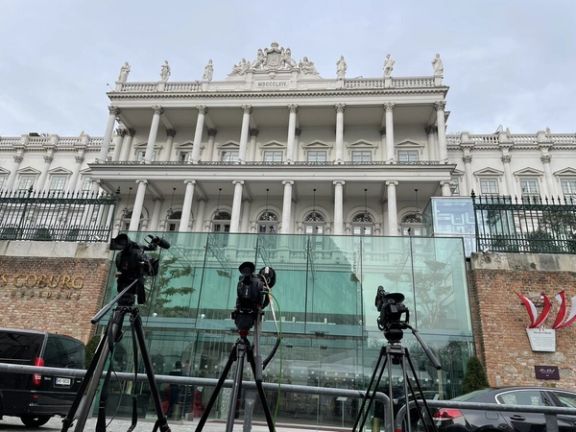
As a US Democratic Senator told Iran International that not reaching a nuclear deal with Tehran can be cataclysmic for the US and the Mideast, Republicans disagreed.

As a US Democratic Senator told Iran International that not reaching a nuclear deal with Tehran can be cataclysmic for the US and the Mideast, Republicans disagreed.
US Senator Chris Murphy (D-CT) told our correspondent on Wednesday that “I think there is still a very good chance that we'll get a deal. We are closer than we ever have been before, and the consequences of not reaching a deal are cataclysmic for the US and the Middle East."
About the Israeli efforts to dissuade the US from an agreement with Iran, he said “I'm in constant touch with Israeli embassy. I saw the ambassador before the August break. I disagree with Israeli government's position, but I'm always ready to listen.”
Senator Tommy Tuberville (R-AL) said that “Unfortunately there's always a chance (for a deal with Iran) with the Biden administration. We're totally against it as Republicans, we feel for all the people in the Mideast.”
"I think the only thing they're trying to do is to figure out a way to get Iranian oil to Europe, and if that's the reason, we don't need to be doing it, because it'd put a lot of people in harm's way if Iran gets that nuclear weapon. I don't understand what they're trying to do. But let's wait and see. I hope they continue to have problems with talks to get any kind of deal with Iran," he added.
Ben Cardin (D-MD) told Iran International that “There's some conflicting provisions that have to be resolved before an agreement can take place.”
Iranian political analysts say Tehran's nuclear talks with the United States are likely to be prolonged even until after US elections in November.

Lebanon is preparing to send a delegation to Iran for talks on acquiring “free fuel” to ease its power outages, without being exposed to US sanctions.
Two Lebanese government sources said on Wednesday that Iran's ambassador in Beirut, Mojtaba Amani, has proposed an Iranian "gift" of fuel to Lebanon.
If a deal is reached between Tehran and Beirut, the fuel deliveries would be Iran's first directly to the country after it previously sent some to its ally Hezbollah, a powerful armed group that is part of Lebanon's coalition government.
Lebanon has been struggling with outages for decades but its economic meltdown since 2019 has drained state reserves and slowed down imports of fuel for government plants, leaving most of the country with just one or two hours of state-provided electricity per day. The outages have forced households to rely on subscriptions to private generators that have skyrocketed as global fuel prices spiked.
Lebanon has natural gas fields in the Mediterranean Sea but a boundary dispute with Israel has so far prevented gas extraction that could help its economy.
The delivery of free fuel to another country is a sensitive issue in Iran where an economic crisis has impoverished millions of people, while the government has failed to reach a nuclear deal with the West, which could end economic sanctions imposed by the United States since 2018.
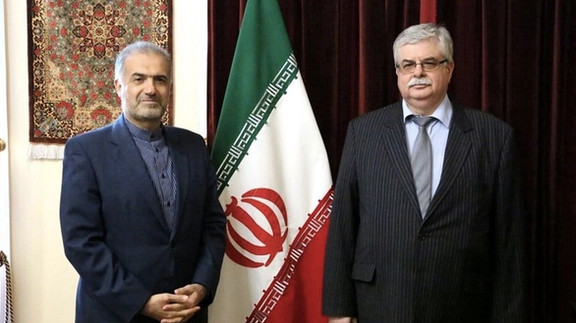
Iran's envoy in Moscow announced Tuesday that he met with Alexey Dedov, the new Russian ambassador to Tehran, who is replacing the former controversial envoy.
“I met with Alexey Dedov today. He will soon start working as Russia's new ambassador in Iran. We both stressed that relations between Iran and Russia currently stand at one of the best eras of their history,” Kazem Jalali tweeted. Jalali also wished success for Dedov and thanked the outgoing envoy Levan Dzhagaryan's (Jagarian) “efforts”.
The 61-year-old Alexey Yurievich Dedov began his career in the Soviet foreign ministry and served as the deputy head of mission of the Russian embassy in Iran from 2004 until 2009. He was posted to Islamabad, Pakistan, as ambassador in 2013. In February 2014 Dedov was promoted to ambassador extraordinary and plenipotentiary and until 2019 remained in Pakistan where he often wrote articles for Pakistan’s The Express Tribune.
The incumbent Dzhagaryan has served in Tehran since October 2011. In the past few months. Dzhagaryan has angered Iranian media and social media users on several occasions and made headlines for all the wrong reasons.
It is not clear if he was replaced for this reason or for Russia’s growing ties with Iran after the Ukraine invasion.
Anti-Russian sentiments have been quite often in Iran in the past few months, particularly since early March when Russia demanded exemption from the United States regarding Ukraine sanctions in all its dealings with Iran during talks to restore the 2015 nuclear deal (JCPOA). Iranian media and the public expressed outrage at Russia’s demand, seeing it as a hurdle in the way of concluding a deal that would lift US sanctions on Iran.
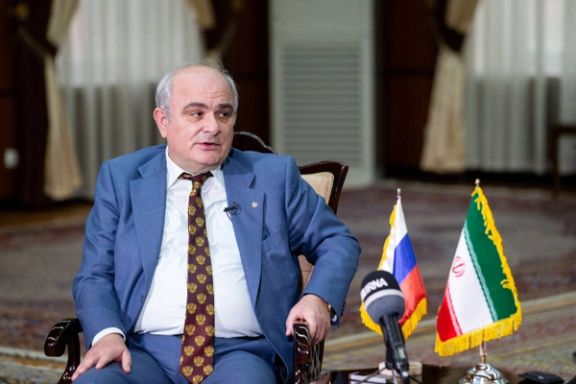
Many Iranians have a historical bias and distrust towards Russia for interferences in Iran's domestic affairs in Tsarist times, wars fought between the two countries, and later, the continuation of the same policies by the Soviets.
Despite the public’s prevalent negative view, an unprecedented host of high-ranking Iranian political and military officials attended the Russian national day ceremony at the embassy in Tehran on June 12 this year and lined up to shake hands with the controversial ambassador.
High-ranking officials traditionally keep away from most national day ceremonies at foreign missions in Tehran where alcohol is served, and women do not have to wear the hijab.
Dzhagaryan became famous among Iranian social media users in February when the Russian embassy posted a photo of him on Twitter laying a wreath at the foot of a monument to Alexander Griboyedov inside the embassy compound on Diplomats Day.
Social-media users expressed outrage because of Griboyedov’s role in a 1828 treaty, ending the Russo-Persian War (1826-1828) forcing Iran to cede the south Caucasus to the Russian Empire. Griboyedov was killed by a mob in Tehran in 1829 after being appointed Russia's ambassador.
Following Russia’s invasion of Ukraine, Dzhagaryan instructed Iranian reporters in Tehran on how to cover the event and not to use the word ‘war,’ instead to call it a ‘special military operation.’
The Russian ambassador also annoyed Iranian officials ahead of the Russian leader Vladimir Putin’s visit to Iran in July when he said in aninterview with Shargh newspaper that "hijab and the lack of alcoholic drinks in Iran prevent Russian tourists from coming to Iran.” This was seen as criticism of the Islamic Republic's underlying Islamic values.
Dzhagaryan also said Iran owed Russia hundreds of millions of euros and was not paying its debt.
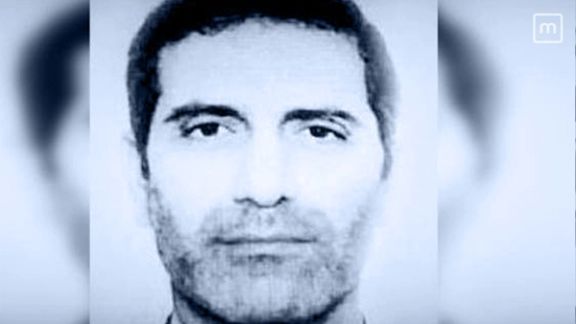
A group of Belgian and international UN experts in human rights, criminal justice, and international law have urged Brussels to resist Iran’s hostage diplomacy tactics.
In an open letter on Wednesday, a group of 68 current and former EU and UN judges, special advisers, and legal experts, wrote to Prime Minister Alexander De Croo, “Rather than helping to foster impunity in Iran by releasing a convicted terrorist, the Belgian government should unequivocally declare that Assadollah Assadi will not be released back to Iran."
Earlier in the month, Iran’s foreign ministry reiterated calls for release of the former official. Assadi, 50, a former attaché at the Iranian embassy in Austria, was convicted of plotting to bomb a gathering of the exiled opposition group Mujahedin-e Khalq Organization (MEK) near Paris on June 30, 2018. Iran says Nouri’s detention is driven by “false allegations” made by the MEK.
They expressed their deep concerns that “Releasing Assadollah Assadi back to Iran would only fuel the culture of impunity that exists for Iran's officials.”
Referring to a treaty between Tehran and Brussels on expatriation of convicts, they said that article 13 of the treaty states that "Each Party may grant pardon, amnesty or commutation of the sentence in accordance with its Constitution or other laws,” which would “effectively allow the Iranian government to grant pardon to Assadi the moment he arrives in Iran.”
Iran has been accused of wrongfully detaining at least a dozen foreign and dual nationals on trumped up charges, effectively as hostages to extract concessions from Western governments. Most of them are held on spurious spying charges.
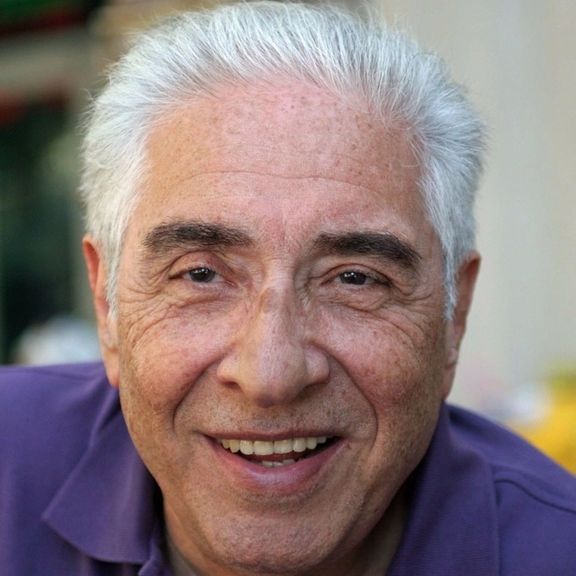
The United States has called on Iran to release American citizens it holds hostage, saying it is continuing to approach negotiations to secure the release of four Iranian-Americans.
State Department principal deputy spokesperson Vedant Patel said in a press briefing on Tuesday that the US “is seeking to secure the release of four wrongfully detained US citizens with the utmost urgency, and will continue to urge Iran to do the same.”
“Iran must allow Baquer (Bagher) and Siamak Namazi, Emad Sharghi (Shargi), and Morad Tahbaz to return home to their loved ones,” he said, declining to comment on Bagher’s medical issues over privacy concerns.
Bagher Namazi, 85, and his son, Siamak, are both jailed by the Islamic Republic, while the elder is in need of surgery “within weeks,” his family said. According to a statement from Perseus Strategies, which represents the family, he already had health problems when he was detained in 2016, and has developed further medical issues during his six years of imprisonment.
“According to multiple neurologists, Namazi must undergo surgery within weeks to clear life-threatening blockages in his left internal carotid artery,” the statement read, adding that “At the time of his arrest, Bagher was 79 years old and already suffering from numerous health conditions... The horrific prison conditions, denial of proper care, and overall trauma of the past six and a half years have been devastating for Bagher’s physical and mental health. He developed stress induced, adult-onset epilepsy, as well as severe depression.
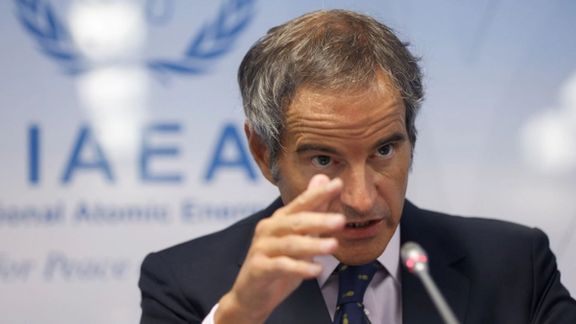
Iranian political analyst Ali Bigdeli says Tehran's nuclear talks with the United States are likely to be prolonged even until after US elections in November.
Speaking to the conservative Nameh News website in Tehran, Bigdeli said there are two reasons why the negotiations remain inconclusive for a long time.
"One reason is that there are influential groups in Iran and the United States who are against an agreement," he said, adding that "The second reason is that the International Atomic Energy Agency (IAEA) is exerting pressure on Tehran over safeguard issues while according to Iranian nuclear chief Mohammad Eslami, Tehran is not prepared to show any further flexibility in this regard."
Bigdeli said that the JCPOA is unlikely to be revived without solving these two problems. "In the meantime," he added "Iranian and US negotiators are likely to send messages back and forth as there seems to be no determination, particularly in the West, to revive the 2015 nuclear deal."
He further reiterated that without direct talks between Iran and America, and without the IAEA's final verdict on the safeguards issue, it is unlikely that the two sides can reach an agreement.
Meanwhile, the spokesman for the Iranian government Ali Bahadori Jahromi told reporters in Tehran on Tuesday [September 6] that Iran has never left the negotiations and will never do that in the future. However, he added that "The other side should give up its excessive demands."
Bahadori further said Iran needs reassuring guarantees in the negotiations, the lifting of sanctions should be meaningful and sustainable and political claims about the safeguards should end.
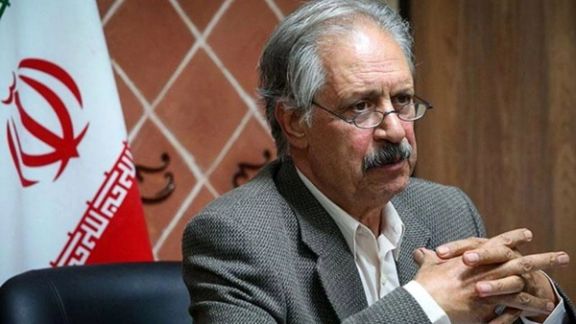
In another development Iranian political analyst Habibollah Burbur told Nameh News on Tuesday that "No one should fall in love with a new agreement." He added that Iranians should learn to run their country based on what they have, and without any dependency on oil exports."
Burbur added, "We need to convert oil into products that could be sold without fearing the impact of sanctions." In his pessimistic analysis Burbur said: "Westerners can bloc transferring foreign currency to Iran at any given time." He further added that "Since the 1979 revolution, the Americans have always wanted to topple the Islamic Republic, but this is an uncalculated attempt as Iran is being supported by other countries."
Burbur did not name those countries, but Iran has frequently named Russia, China, North Korea and Venezuela as its allies while little is heard from those countries about a military alliance with Iran against the United States or any other country. During the 1980s war between Iran and Iraq, Russia openly supported Iraq against Iran.
Meanwhile, reformist political figure Alimohammad Haghshenas said in an interview with the Iranian Labor News Agency (ILNA) on Tuesday that "making an agreement with the United States is a complicated matter and those who make decisions on the matter should be accountable before the next generation of Iranians."
Haghshenas called on Iran's state-owned media including the state television and major news agencies to seek the views of individuals from across the country's political spectrum on the issue of a nuclear agreement with the United States.
He added that governments aligning with various political factions have worked on the nuclear negotiations for many years and all of the political factions should have a say about this matter. He also called on the government not to keep the parliament and political activists in the dark about their measures and decisions about the agreement.